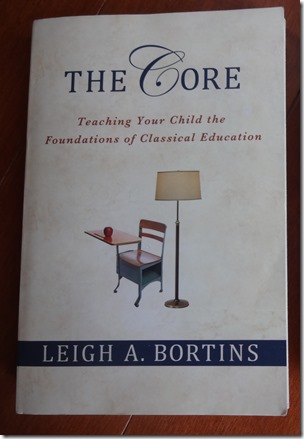Simplicity.
Jul 23, 2015
If I had to summarize the Classical Model of Education right now and in one word, I would say, simplicity. As I have spent this summer learning about classical education, the simplicity of the early, foundational years stands out and I am enamored by this philosophy of education. Classical Education works within the developmental capabilities of the child. Young children are like sponges; they soak in information through repetitious exposure.
As a former elementary teacher, I can see how our public schools are pushing very young children to think critically which is something they are not developmentally ready to do until later on in their education. We are pushing children to read at earlier and earlier ages and forcing them to write creative stories with incorrect spelling and numerous grammatical errors. Our educational system is pushing a generation of students to be “global” but they can’t even locate famous landmarks on a map. Our educational system has done what it thinks is best for our children by moving away from teaching core knowledge that children of generations before us knew and instead has it’s focus on higher level thinking at the earliest age possible.
Classical Education teaches children core knowledge from all subject areas. (Is Geography taught in public schools to the extent that it is taught in Classical Education? No!) Then children take this core knowledge they have learned from their elementary school years and they begin to use it to think critically in the later years of their education when they are developmentally ready to think this way.
The how-to's of classical education in the early years is so simple and it has changed my mindset as to what I now believe is important for my girls to do and learn in these early years.
Classical Conversations is just one method out there of how families can accomplish a Classical Education. During the early years – the foundational years – less is truly more. As I read The Core by Leigh Bortins (the founder of CC) the simplicity of early education stood out to me. CC is always talking about “stick in the sand” education, meaning everything a child needs to know in these foundational years can be taught to them with a stick and sand. We don’t have to over complicate things by scouring the internet for the latest and greatest printables and curriculum and feeling like our children are missing out if we are not doing it all.
Reading The Core and attending the Classical Conversations Practicum has made me focus on what is truly important for a child’s classical elementary education. Little Bug is six years old and in 1st Grade. All she needs at this point in her education is:
- a phonics program (We’ve chosen All About Reading)
- a math program (We’ve chosen Horizons Math)
- Foundations Memory Work
- lots of creative play and outdoor play </ol>
As time has passed, professional education associations have made the decision that basic facts can be looked up – they no longer need to be memorized. Critical thinking skills and experimental education have replaced memorization in the early years of education. There is something to be said about knowing core knowledge. The Foundations program of CC pours all of that knowledge into the child’s mind from ages 4-11. At age twelve, when they are developmentally ready to begin sorting through and thinking critically about all this knowledge, they move from the grammar stage of learning to the dialectic stage of learning and then to the rhetoric stage of learning.
A classically educated students has learned how to learn. They haven’t just crammed a bunch of information in their minds to be able to pass an exam. (I remember many times in highschool and college doing this!) There is knowledge embedded in their memories that they can later access to be able to discuss, analyze, write, debate and eloquently express to others their beliefs on a certain subject.
I want that for my children and I am thrilled that I will be learning right alongside my children as we begin CC in the Fall!
- Elaine
